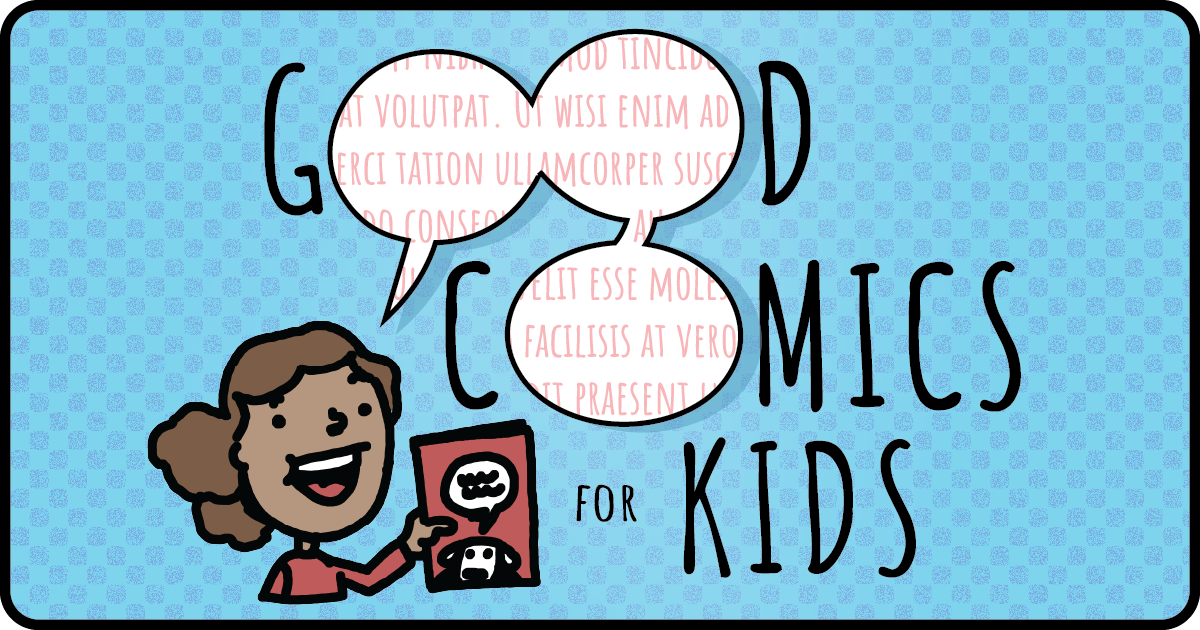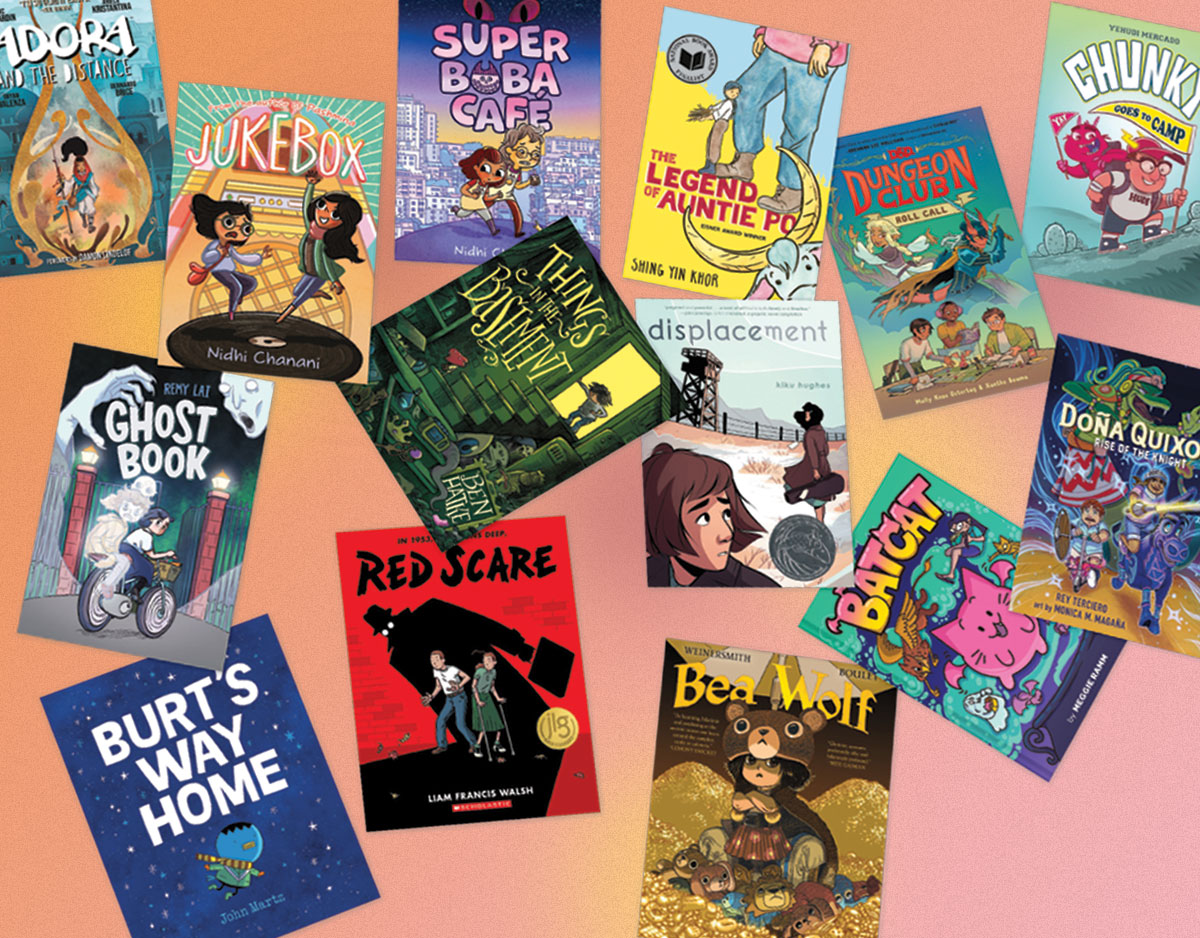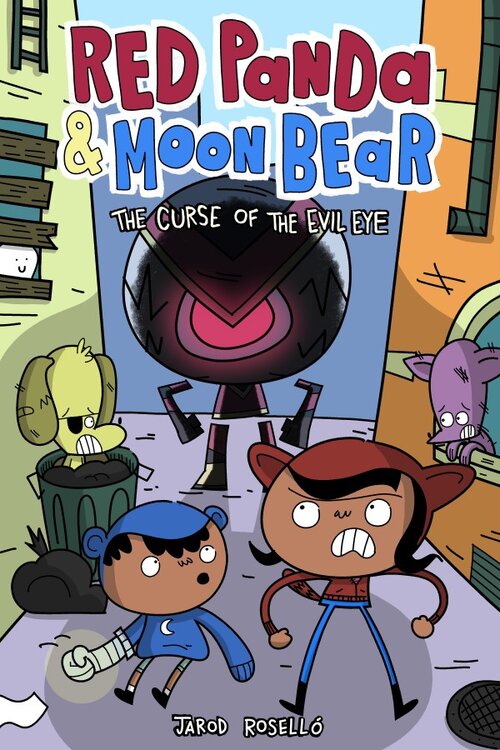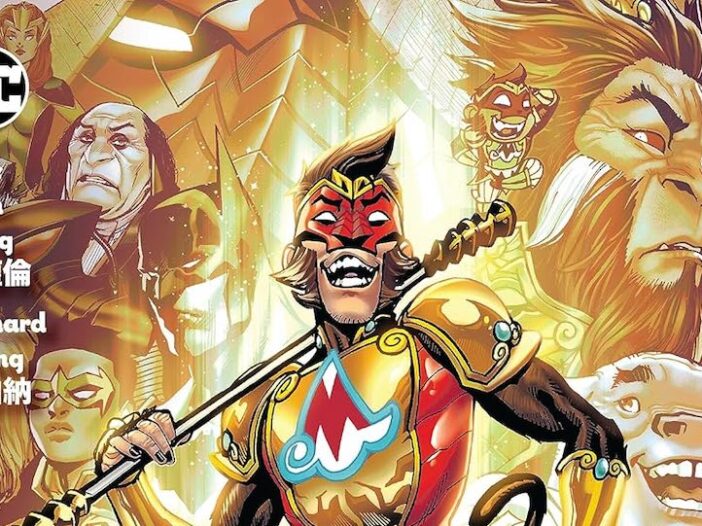
Monkey Prince Vol. 2: The Monkey King and I | Review
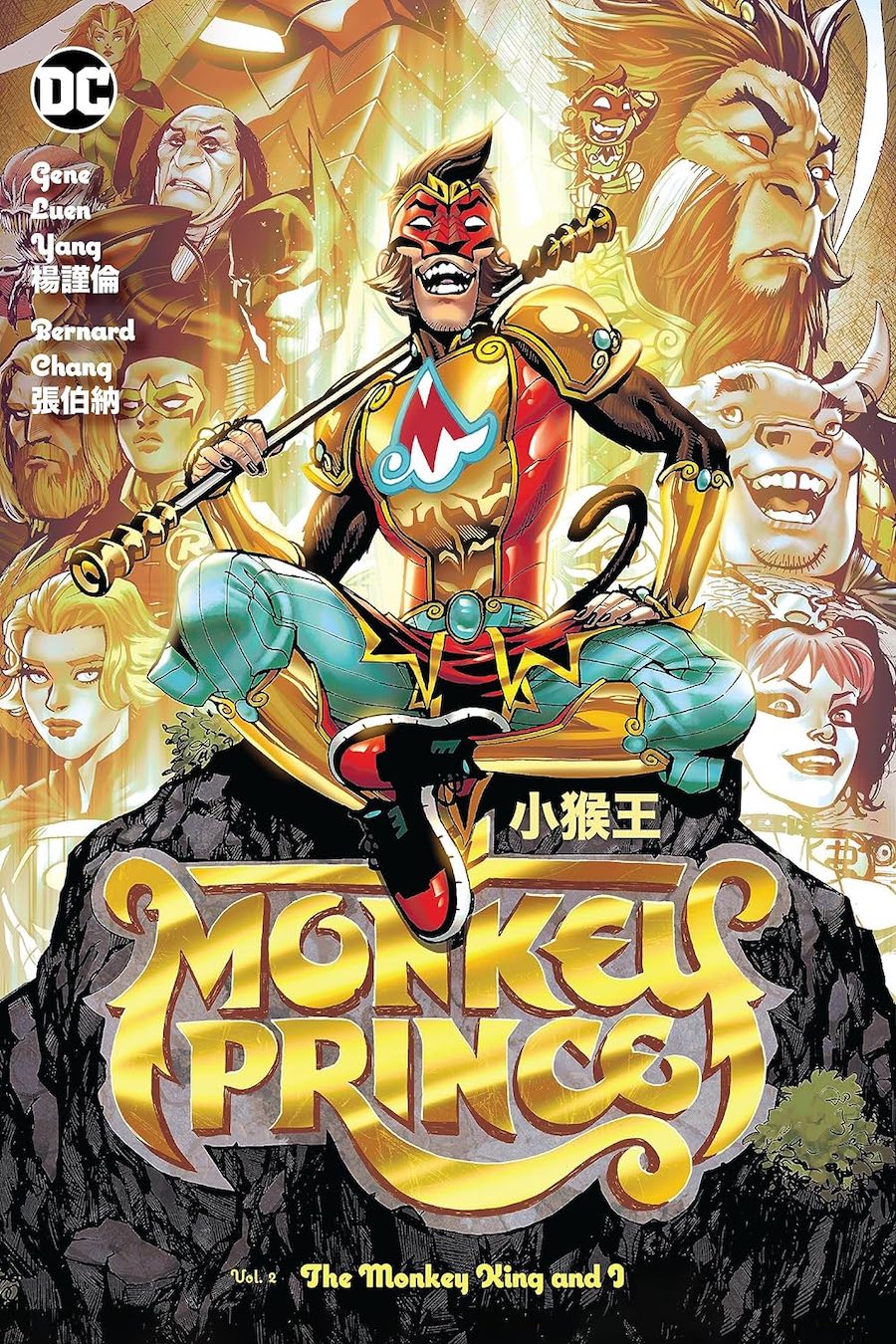
Monkey Prince Vol. 2: The Monkey King and I
Writer: Gene Luen Yang
Artists: Bernard Chang and Billy Tan
DC Comics; $24.99
“Derailed” is perhaps too dramatic a work for what DC Comics’ line-wide publishing plans did to the ending of writer Gene Luen Yang’s Monkey Prince storyline as it neared its climax, but not by much. The second half of Monkey Prince Vol. 2: The Monkey King and I, itself the second half of Yang’s limited series with artist Bernard Chang, is rather rough going, with major events occurring in other comics not collected herein, which is too often the case with superhero universe comics.
Let’s back up. Monkey Prince was, like many of DC’s super-comics, originally published serially, in this case as a monthly, 12-issue series. Rather late in its run, well after Yang had established the premise of the title—teenager Marus moves from city to city with his mad scientist parents who work as henchpeople to DC supervillains, and he’s just discovered he’s the super-powered son of the Monkey King of Chinese legend—and began telling the story of Marcus’ training under mystical Shifu Pigsy and the upcoming conflict with a demon who is busily assembling an army, DC published an “event” series in Batman Vs. Robin, and a suite of tie-ins under the umbrella title of Lazarus Planet. These events featured Monkey Prince and Pigsy and even their demonic villain rather heavily.
ADVERTISEMENT
ADVERTISEMENT
This is a classic double-edged sword of superhero comics, of course. On the one hand, it’s annoying in that it all but forces readers to pick up additional comics if they want to follow the adventures of their favorite hero—a greater pressure when dealing with a brand-new hero like Monkey Prince—while, on the other hand, it puts the character in front of many more eyeballs than those currently reading the hero’s solo book, and is thus likely to increase said hero’s popularity and, in these trying times, perhaps keep that solo book in print longer.
If one reads the book serially, as it’s published, then it’s not that big of a deal; one will encounter the extra goings-on in the books as they’re published and be able to make sense of the narrative just fine.
But if one reads the books in their collected graphic novel form, the way in which they will be presented with the most longevity, the way in which most readers encounter Yang’s work and, of course, the way I was reading the book, it presents a problem, as only so much of that extra, Batman Vs. Robin and Lazarus Planet-related material can fit into a collection of Monkey Prince.
The best we can do is read all the relevant graphic novels, which will get you all the content, but not necessarily in a way that is pleasurable to read–or even natural. DC does its best with this collection, I suppose, including a Billy Tan-drawn short story from the pages of one of the Lazarus Planet tie-ins, but it happens in the middle of the four-part story arc that the collection takes its title from, and events from Lazarus Planet intrude on the storyline, and other parts of the storyline seem to be “missing,” having occurred in the pages of other comics.
It’s frustrating, but only because Yang and artist Bernard Chang had done a rather fine job of building up the title in its first three-quarters or so, integrating the legendary world of Chinese gods with the New Gods mythology that Jack Kirby created for the DC Universe, resulting in a superhero story that owed as much to classic Chinese literature as to Superman.
This volume begins with the sort of national tour set-up the first volume did, with Marcus’ parents working with a new supervillain in a new city (here with Black Manta in Aquaman’s Amnesty Bay, then Lex Luthor in Superman’s Metropolis) as the cocky Monkey Prince butts heads with the DC Universe’s stars between moments devoted to training his powers in order to combat the threat of a demon army.
When his mother is grievously injured, Marcus’ father takes them to meet Marchus’ estranged grandfather, who turns out to be a well-known DC supervillain—maybe not the biggest name, but perhaps the first supervillain. While there, he learns the circumstances of his adoption by his parents and comes face to face with his father, The Monkey King, who has doubts that Marcus is really his son.
ADVERTISEMENT
ADVERTISEMENT
Meanwhile, Lazarus Planet intrudes, with the disappearance of Pigsy from the narrative, a magical rain that cancels out guest-star Supergirl’s powers and makes monsters out of bystanders, and the off-page defeat of that demon so many pages of the series was devoted to building up the threat of.
Yang and Chang recover rather strongly with an ending that answers some of the questions of the Monkey Prince’s true origins and his place in the world of DC’s superheroes but also leaves unresolved some new conflicts, which I guess will be played out if and when the character or series returns in the future.
As Yang-written comics go, it’s not the most satisfying read, but perhaps it’s fitting that the book suffers the same drawbacks of so many other super-comics, given the benefit it reaped from tying its narrative so closely to the exploration of said comics.
Regardless of how the plotting of this second, concluding volume played out, Yang and Chang have definitely created a dynamic, colorful new character for a superhero universe that is notoriously unfriendly to new characters and concepts. I’ll therefore look forward to the Monkey Prince’s return some day.
Filed under: Reviews
About J. Caleb Mozzocco
J. Caleb Mozzocco is a way-too-busy freelance writer who has written about comics for online and print venues for a rather long time now. He currently contributes to Comic Book Resources' Robot 6 blog and ComicsAlliance, and maintains his own daily-ish blog at EveryDayIsLikeWednesday.blogspot.com. He lives in northeast Ohio, where he works as a circulation clerk at a public library by day.
ADVERTISEMENT
ADVERTISEMENT
SLJ Blog Network
Name That LEGO Book Cover! (#53)
Cover Reveal and Q&A: The One and Only Googoosh with Azadeh Westergaard
Fighting Public School Book Bans with the Civil Rights Act
North Texas Teen Book Festival 2024 Recap
ADVERTISEMENT

